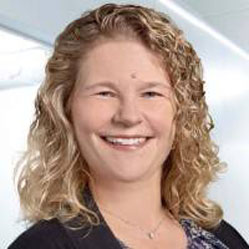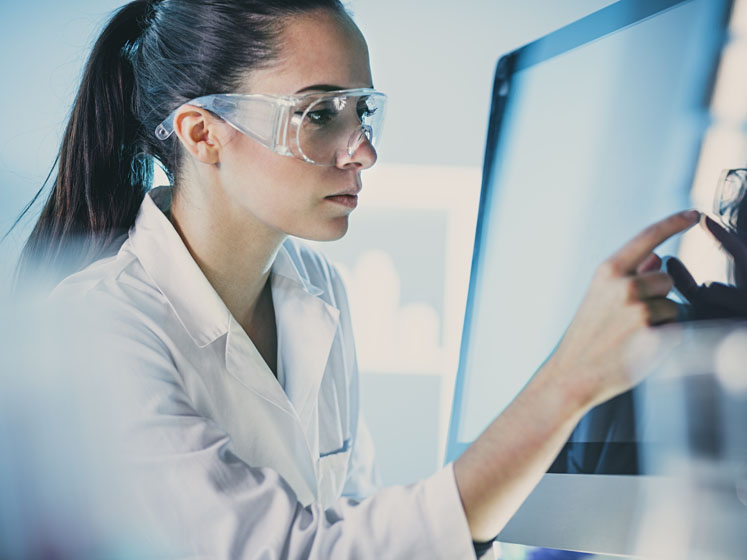Building on the Part I topic of automation, the conversation turns to buzzwords such as Big Data, artificial intelligence (AI) and machine learning.
I ask Diane whether these are concepts that have been embraced by Waters or play a role in their more democratic approach to working with customers. “I think we’re really just scratching the surface with AI and machine learning,” comments Diane, “although we do have several in-house research projects on the go and some collaborations with customers."
"We’re trying to understand how to apply machine learning to what we do; not so much how an HPLC or a mass spectrometer operates, but things like knowing when pump seals are going to fail, when a system needs tuning and how, solvent monitoring, etc. It’ll be about using feedback loops to improve our day-to-day operational activities.”
“Of course, there’s also data analysis, information processing and product development. Yet, for all the effort that’s gone into developing new methods and different types of software, we still need a human to ask the right question."
"For example, with the right parameters, sample and/or compounds, the ideal situation would be to feed that data into an instrument and be told what to try first, to better understand the starting point of an analysis. And, to be fair, we’re getting much closer to that.”
“Anything that can help with large pools of data and accelerate the decision-making process would be helpful. Even though it’s 2021, we still have data in multiple locations on various servers. And it’s not like we need to generate more data, we just need to put it all together and apply the principles of machine learning and AI to help us think and make better decisions.”

Diane Diehl
“Some things will never change, of course. Even though we can monitor an ongoing process with a smartphone, there will always be gauge watchers and those who want to be right next to their column in case anything goes wrong with a precious sample."
"But, the cloud and the ability to operate remotely is certainly contributing to productivity, a better work-life balance and less stress. Logging in from home often means that people can work different hours, read more papers or crunch more data because they have fewer distractions or scheduled meetings. It’s been quite a revelation!”
I wonder: how do we maintain that sort of hybrid working environment in a post-pandemic world? “I don’t think anybody has the answers for that,” suggests Diane, “but the mental health aspect is a critical consideration."
"What’s missing are those water cooler moments that we don’t currently have and informal, creative collusions that are often random and unplanned. We have to find a way to ensure that, whatever the future holds, we don’t lose touch with our colleagues on a professional or personal basis.”
“When you’re not in the lab on a day to day basis, you can’t just pop over to a colleague and ask them to look at a chromatogram, for example, so we have to be more creative about getting ourselves together, even virtually, to retain a sense of community. As a company and as an industry, we need to continue this open-minded spirit of wanting to do more … for the good of science, for ourselves and even for the planet.”
Separation science
No conversation with Waters would be complete without talking about detection levels, the ability to identify and isolate both large and small molecules, and advancing the discipline of separation science, but Diane assures me that all of the above “is essentially a given!”
“None of that will change,” she adds, “and we’ll continue to research both detectors and detection limits. But, a current focus and what we’re accelerating is usability, accessibility and ensuring that anyone who walks up to a system can operate it. If you’re not going to be in the building 5 days a week, you really need to make sure those systems are as robust as possible, that they won’t disconnect or foul up."
"If you can’t enter a lab to fix a problem, then it’s imperative that your system is reliable; that’s the new expectation. Another aspect we’re working on is making our systems more serviceable, so that when an engineer is onsite, a fix or repair can be done, quickly and effectively. As such, our components need to be much more straightforward.”

“At the same time, the supply chain has become increasingly important. It’s not just drugs that are in short supply, so are semiconductor components, electronics … even plastics. We have to make sure that we have a robust, secure supply chain, irrespective of whether we’re talking about pharmaceutical manufacturing, the car industry or any other market."
"I don’t think we appreciated how global the entire economy had become until we were suddenly unable to source items from China or India. It’s a key consideration and something we all need to figure out, for now and the future.”
“So, as we plan ahead and look to develop new products, that’s really only one part of the puzzle. We need to think about managing the entire supply chain, how we’re going to be able to get our systems and solutions delivered to different countries, etc."
"The current situation in India is heart-breaking, and it really makes you think: with pharmaceutical manufacturing being shut down, what are the long-term ramifications? How can we get our equipment into a country that needs it for QA/QC-type work? The logistics are frightening.”
Corporate social responsibility
Bringing the discussion to a close, I ask Diane about the omnipresent burden of sustainability and wonder how, as a supplier of consumables, the company manages to deal with the planet’s demands for less plastic, reusability and recyclability.
“We have a whole sustainability programme in place,” she enthuses: “In terms of consumables, our chemistry division very recently redesigned our column boxes to make them smaller, recyclable and more ecofriendly. It’s already made a noticeable difference, even in our own labs where we have shelves of columns that take up quite a lot of room."
"Again, it’s one small part of the puzzle, and we’re also investing in renewable energy sources. Whatever we can do to reduce our carbon footprint is the right thing to do, and it’s what our customers expect. They’re doing it; they want to see that we’re doing it and, absolutely, we’re encouraging all our partners to do whatever they can to improve the world we live in.”
